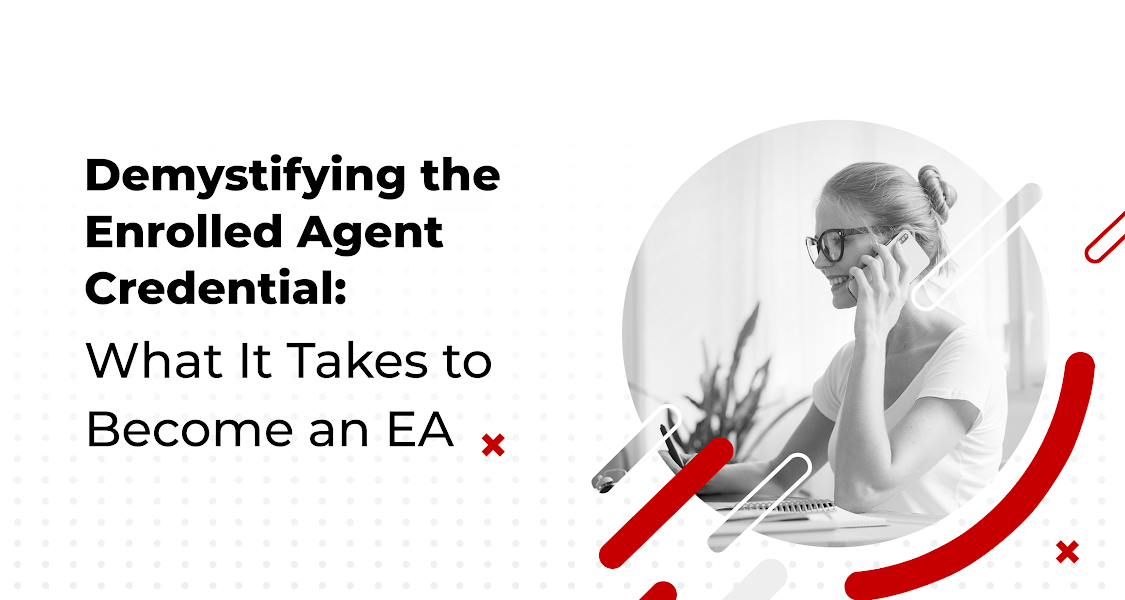Are you intrigued by the world of taxation and looking to establish a rewarding career in the field? Becoming an Enrolled Agent (EA) could be your gateway to a successful and fulfilling career in tax preparation, representation, and advisory services. In this guide, we’ll explore what it takes to become an EA, the career opportunities it offers, and how you can embark on this exciting journey.
What is an Enrolled Agent?
An Enrolled Agent is a tax professional who is approved to represent taxpayers before the Internal Revenue Service (IRS) by the U.S. Department of the Treasury. EAs are tax experts with specialized knowledge in tax law and regulations, making them valuable assets in the tax preparation and advisory industry.
How to Become an Enrolled Agent:
Becoming an Enrolled Agent requires passing a rigorous three-part exam called the Special Enrollment Examination (SEE) and meeting certain eligibility requirements set by the IRS. The exam covers various topics such as individual taxation, business taxation, and representation, practices, and procedures.
To qualify for the EA exam, you must have either relevant work experience with the IRS or complete an IRS-approved comprehensive tax course. Once you pass the exam and meet the other requirements, you can apply for enrollment as an EA with the IRS.
Benefits of Becoming an Enrolled Agent:
- Career Flexibility: As an Enrolled Agent, you can work in various settings, including accounting firms, tax preparation companies, and financial institutions, or even start your tax practice. The flexibility of the EA credential allows you to pursue diverse career opportunities within the tax industry.
- Job Security: Tax preparation and advisory services are in constant demand, providing Enrolled Agents with a stable and secure career path. With the complexity of tax laws and regulations, the expertise of EAs is highly valued by individuals and businesses alike.
- Professional Recognition: The EA credential is a prestigious designation in the tax industry, demonstrating your expertise and commitment to excellence. Clients and employers often prefer working with Enrolled Agents due to their specialized knowledge and ability to handle complex tax matters.
- Continuing Education: To maintain the EA credential, you are required to complete a certain number of continuing education credits each year. This ensures that EAs stay updated with the latest tax laws and regulations, enhancing their professional skills and knowledge.
Enrolled Agent Career Paths:
As an EA, you can pursue various career paths, including:
- Tax Preparation: Prepare and file tax returns for individuals, businesses, and other entities.
- Tax Advisory Services: Provide tax planning and advisory services to help clients minimize their tax liabilities and comply with tax laws.
- Tax Representation: Represent clients in front of the IRS in tax audits, appeals, and other tax-related matters.
Enrolled Agent Course:
To prepare for the EA exam, consider enrolling in an Enrolled Agent course. These courses are designed to help you master the topics covered in the exam and prepare you for a successful career as an EA. Look for courses that offer comprehensive study materials, practice exams, and expert guidance to ensure you are well-prepared for the exam.
Conclusion:
In conclusion, becoming an Enrolled Agent is an excellent career choice for those interested in taxation. With the right education, training, and commitment, you can embark on a successful career as an EA and make a meaningful impact in the tax industry. If you’re passionate about taxes and eager to help individuals and businesses navigate the complexities of tax laws, consider becoming an Enrolled Agent today!
For more information on how to become an EA and advance your career in taxation, contact Orbit Institutes. Our comprehensive Enrolled Agent course will equip you with the knowledge and skills needed to succeed in the tax industry.

